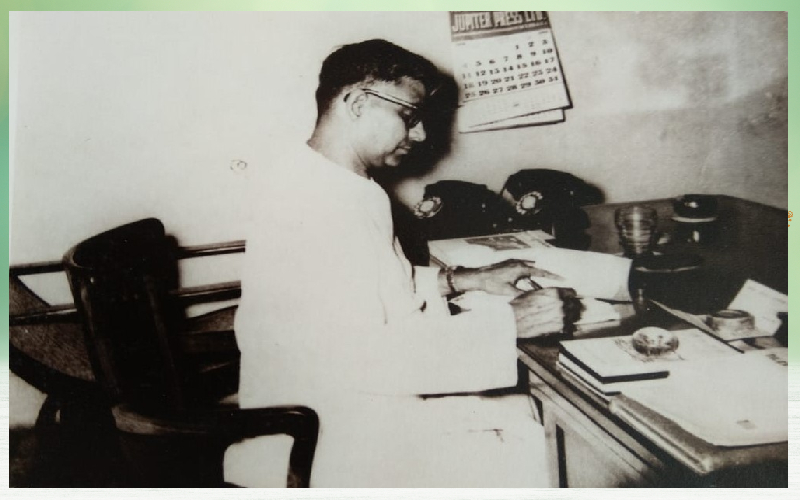
The Vanguard Insurance Co Ltd was founded on 14/1/1937 by the interesting freedom fighter and republican entrepreneur, H. D. Rajah (1905 - 1959). While Rajaji presided over, the company had been inaugurated by Alladi Krishnaswamy Iyer. It started off as a motor insurance company and was the first one of its kind. The company began soliciting business much before motor insurance was made compulsory. The response from the public was quite good and a dividend was paid out the profits during the very first year.
Vanguard Insurance confined its activities to just the Madras Presidency during the early years. On gaining sufficient experience, it entered Ceylon (Sri Lanka) by the year 1939. Motor Insurance in Ceylon had until then been the monopoly of Europeans. But Vanguard Insurance spread its activities in the most unorthodox way by a direct approach to the insuring public of Ceylon. The company offered better services at a lower premium. Therefore, it captured a top rank in the market in Ceylon within a short period of time. Vanguard settled claims quickly and won the affection of the policy holders. Ceylon had stolen a march in the clearances connected with insurance and this helped Vanguard in a big way.
The company moved into Life Insurance in 1938 with the aim of building up a good portfolio. This was based on the motor insurance experience. However, the promoter H. D. Rajah took baby steps during the initial days. The progress was slow and steady. By 1941, the company had gradually built a business of Rs.12 lakhs and accumulated a life fund of Rs.48,624. In order to conserve the funds of the company, the directors had voluntarily put a restriction on the expenses of procuring new business and it was possible to add the entire renewal premium collected to the life insurance fund.
H. D. Rajah's stringent policy made the company successful, and it began to spread its wings. Eventually, a number of Vanguard Insurance Agents were created in many centres. Full-fledged branches were opened in Bombay, Bangalore, Ernakulam, Kumbakonam, Madurai, Nellore, Trivandrum and Trichy. The business yield began to increase year on year and Vanguard became a name to reckon with in the insurance sector. Profits accompanied growth and the first dividend came to 4 %. By the year 1946, the company had paid out about 66.5 % of the capital as dividend.
The life insurance business of the company was run in the most prudent manner. Extraordinarily little was expended and most of the monies were credited to the premium account. The company's expense ratio was among the lowest and it had been able to almost double its life fund each year. In the year 1943 new policies worth Rs.8 lakhs were issued, and the sum assured reached Rs.27 lakhs by the end of 1944. By the year 1946, the total sum assured under all policies reached a sum of over Rs.1 crore. Business crossed Rs.2.5 crores in the fifties of the last century.
Vanguard owed its success to the management under H. D. Rajah. He had been ably supported by the directors and visionaries like T. R. Ganapathy Iyer. He has invested and supported Vanguard for years. He lived to see the success of the company. The other directors included C. N. Muthuranga Mudaliar a landlord who had been part of the Congress Party and had made a lot of sacrifices for the country, S. Rm. Ct. Pl. Palaniappa Chettiar (Managing Director - General & Credit Corporation) who was connected with a number of financial institutions, V. P. Varde who was a prominent financier of Bombay, P. Suryanarayana was the other and the Policyholders directors were Dr. R. Sankaran and Dr. N. S. Doraiswami. H. D. Rajah had raised Rs.25 lakhs as the capital for Vanguard and it was endowed with a nice art deco office in Madras (Chennai). The business was nationalized those days as per the policies of the Government, but the office building continues to exist. The H. D. Rajah Street continues to exist off Eldams Road in Teynampet (Chennai).
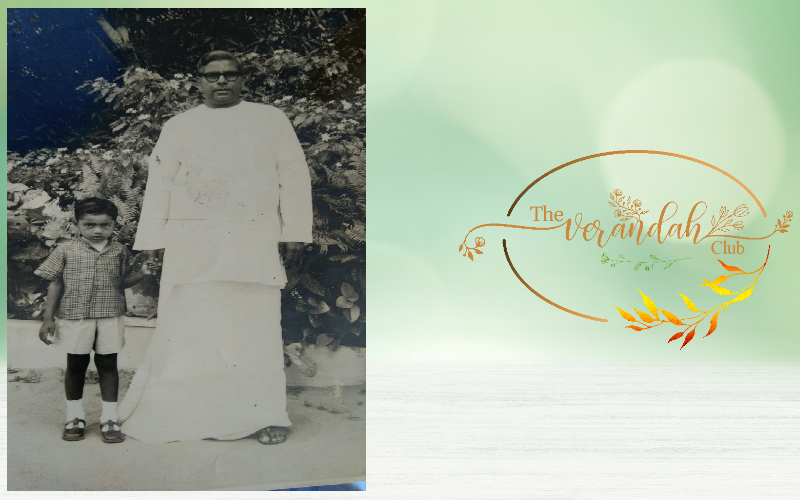
The biography of the founder H. D. Rajah was penned by eminent chronicler Nilkan Perumal and published on Guy Fawkes Day, 1956. The visionary founder of Vanguard Insurance Company H. D. Rajah had been a multi-faceted personality all his life. He was born to Harihara Iyer (1868 - 1910) and Lakshmi at Kayamkulam. Harihara Iyer hailed from Elathoor in Tirunelveli and had moved over to Kayamkulam to establish a textile shop. His wife Lakshmi had been full of courage and this tall lady with graceful manners lived until the year 1956. H. D. Rajah was one of the 5 kids and the family had to move to Trivandrum in order to ensure that the kids could continue their education. The religious minded H. Dharma Rajah (H. D. Rajah) got the George V Coronation Medal while at school. He matriculated in 1923. However, he was always attracted towards the freedom movement after reading about the freedom fighter Ramakrishna Pillai. Rajah took part in Hindi propaganda but was against forcing the language. His brother, Ramayya moved to Bombay and Rajah followed him in 1925. He became a Customs Clerk but resigned one day.
H. D. Rajah founded the 'Youth League' and turned into a revolutionary. He was into the freedom movement and was incarcerated a number of times. Rajah was held up as a hero in Bombay during 1930. He founded the magazine 'Young Liberator'. The Times of India had described it as the fiercest nationalist magazine and Pandit Nehru who happened to be a regular reader sent a cheque for Rs.25 to Rajah. Godrej had supported the magazine with advertisements. The young freedom fighter had mastered the Gita and he did his Surya Namaskar everyday promptly.
The revolutionary knew S. K. Patil, Kamaladevi Chattopadhyay, Umashankar Dixit in Bombay and he served as an assistant to book publisher, B. J. Vaswani. He was in the Assembly as a guest of Srinivasa Iyengar when bombs were hurled in 1928. It was possible for him to come out safely because of Srinivasa Iyengar. Bhagat Singh, the person connected with the bombs was tried and executed by the English. Rajah later formed 'Peoples Battalion' a ginger group of the Congress.
Rajah was thereafter under the tutelage of T. R. Ganapathy Iyer (Rane Limited) and he moved over to Madras. Vanguard Insurance Company came up in 1937 and except for a brief period while he got incarcerated for the country, Rajah was with the company. Marriage to Sarojini had resulted in a happy life with five kids. Rajah had led a very risky cum interesting life. He was known to be very charitable and was quite a forthright person. He felt that the Congress Party needed an opposition and formed the Republican Party on 21/4/1951. He held the first convention at Gokhale Hall in Madras. Constitutional opposition was his theme, and he was the President of the party.
Republican Rajah got elected to the Rajya Sabha in 1952 and he was very must present in the house. He gave over 50 speeches during his tenure and was heard by everyone. Rajah wanted prohibition to be removed, he stated that the intelligence system in our embassies should be upgraded and that the Divorce Act should be applicable to all religious groups and not just the Hindus. The Zonal Parliament concept was floated by him and he wanted the state to encourage entrepreneurship. Rajah wanted India to be out of the Commonwealth for he felt that there was nothing common in them. According to him the commonwealth was a sign of imperialism.
The founder of Vanguard Insurance wrote under the pen name, Kausika. He was angry with Gandhi's stance on Pakistan, but he wept on learning about the assassination. Rajah supported Khasa Subba in his efforts connected with the weekly newspaper, 'Swatantra'. He helped the in the creation of the Tamil edition in addition to the English and Telugu editions. 'New Age' was his other initiative, and he enjoyed the support of the Marwaris. Rajah founded the 'National Literature Publishing Co. Ltd.' by raising capital and it began to publish, 'Modern Times' later. He wrote a novel 'Is it a Crime' in Madras. It was the story of a Hindu woman who could not marry again because there was no provision for divorce. Rajah published a set of essays under the title 'Sparks from the Anvil'. He had been greatly impressed by Anarchist Prince Kropotkin.
This one-time revolutionary who became a parliamentarian visited several countries along with T. S. Narayanaswamy of India Cements and on one trip to New Zealand, he experienced racial discrimination. Rajah had been covered by the media abroad and he had met people like the communist leader, Harry Politt, in the United Kingdom. In UK, he had addressed a gathering of 100 parliamentarians. It was during his trip to the USA that he met George Allen, the former Ambassador to India in a lunch hosted by the Indian Ambassador G. L. Mehta.
The Government under Nehru nationalized the insurance sector and Rajah heard the news from his radio at his house, 'Sringar' and was shocked. He stoutly opposed the move. However, when Suez Canal was nationalized, he appreciated the move. He stated that it was political, and they had to get out of the clutches of foreigners. Rajah stated in the parliament that there were 159 insurance companies and they had policyholders’ interests represented in the board. Also, that more than 70 % of the monies were invested in Government securities. He stated that the insurance business had been Rs. 250 crores in 1935 and had grown over Rs.1100 crores by 1956. New Zealand and France had tried to follow the same route but gave up after some years. Only Costa Rica had a nationalized insurance system.
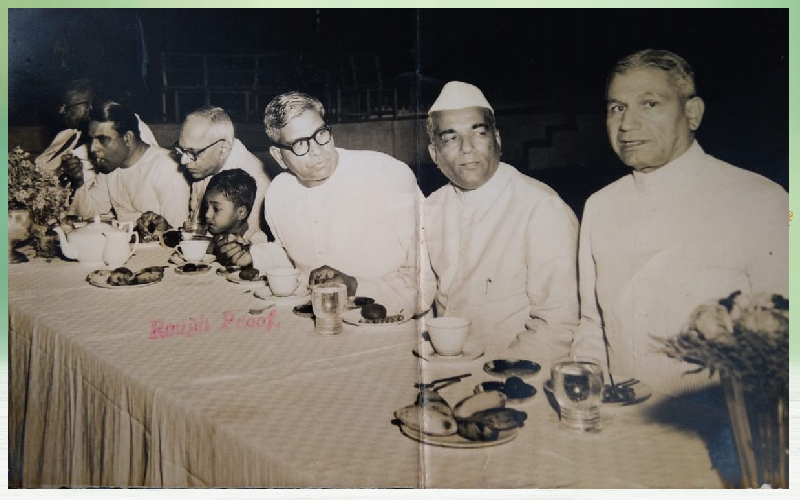
"Socialism without anything being done to fulfil social obligations in regard to education, health, clothing and housing of the people would be unsocial dacoity or social vandalism. Allow people to produce, then divide it. By nationalizing insurance, you have put the best patriots out of work and in the absence of a socialist state, you have no right to misappropriate others money," H. D. Rajah had stated. He was the one who had supported a number of social causes by the day. Despite his company being nationalized, Rajah hosted his regular Independence Day dinner in Madras.
The best encomium for H. D. Rajah was from the Vice-President of India, Dr. S. Radhakrishnan. Mr. H. D. Rajah was an institution in the Rajya Sabha and was listened to with interest whenever he speaks. He was always frank, sometimes brutally frank.
The Lakshmi Harihara High School in Elathoor was founded by H. D. Rajah and it is now being managed by his son Hari Kumar Rajah.
H. D. Rajah was full of humour. In his parliamentary speeches, he conveyed the message interlaced with humour. Like for example, "If Tenali Raman were alive today, he would take a lesson from the Government of our country, because they have made donkeys into horses. By pasting a piece of paper on the second-class compartments, they have made the second-class compartment into a first-class compartment." He had made his presence felt.
NEXT ARTICLE
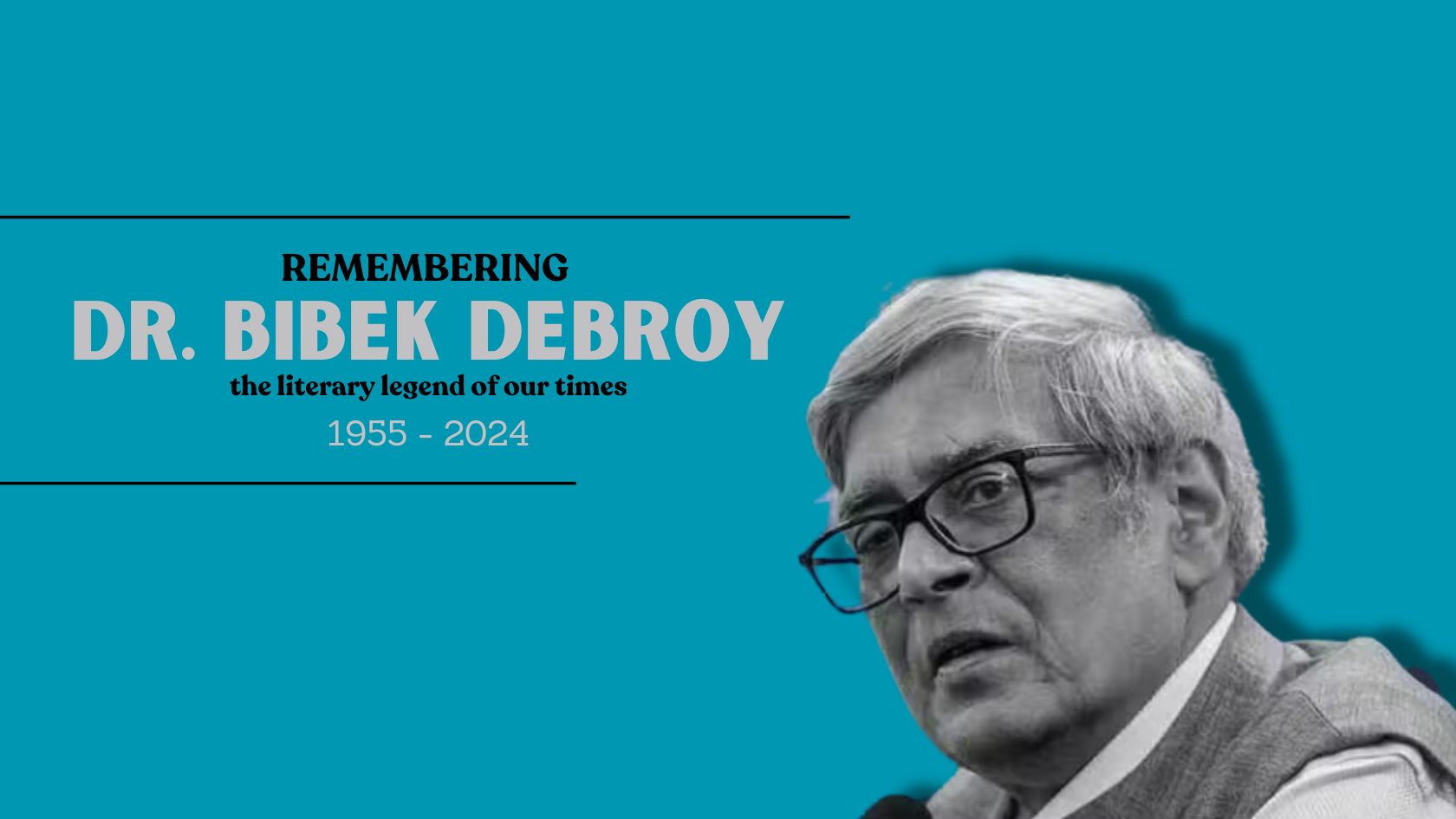
All authors who write about the Mahabharata have to read its unabridged version. The most popular unabridged translation used to be the one by Kisari...
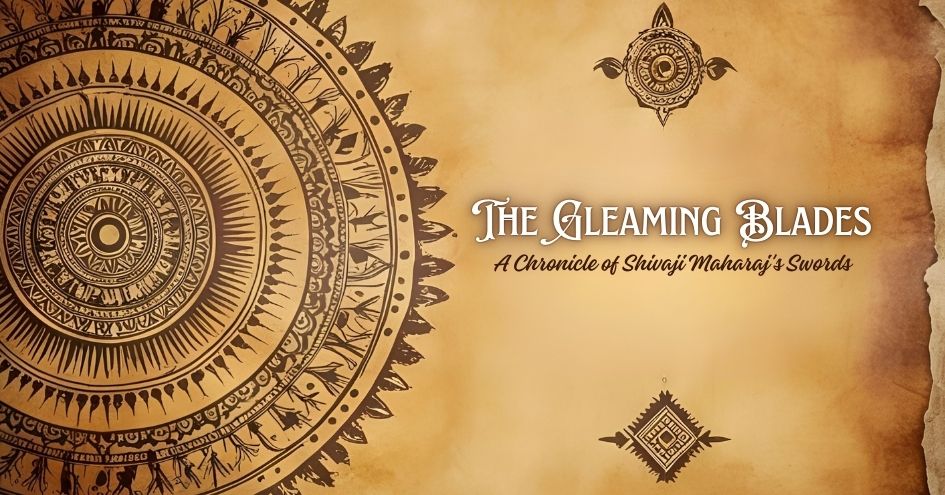
In the annals of Bharat Varsh, amidst the swirling mists of time and legacy, emerges the figure of Chhatrapati Shivaji Maharaj, a warrior whose name e...